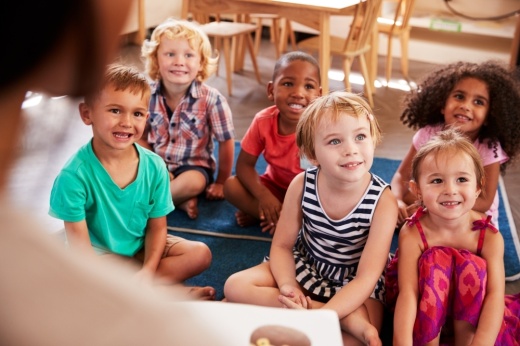In her current role, Martin-Smith oversees the curriculum development and implementation systemwide as well as accreditation and training. Previously, Martin-Smith served as the executive director of an internationally accredited early learning school for 23 years. During that time, she also served for six years as an adjunct faculty member for a private university, where she taught master's early education and master's in organizational leadership courses.
Martin-Smith has a doctorate of education in leadership and a master's of education in early education administration.
Martin-Smith recently spoke with Community Impact Newspaper to discuss the importance of early education programs amid the ongoing coronavirus pandemic.
This interview has been edited for length and clarity.
How has the ongoing coronavirus pandemic affected enrollment in early childhood education programs offered by Children's Lighthouse?
The pandemic has had many negative impacts on the entire educational system. As a company with early learning schools in eight states, the hardest part for us is that each state and each community have been affected differently with different sets of obstacles and regulations. Enrollment plummeted for all schools as COVID-19 came into communities and families took refuge in their homes. Currently, the biggest effect for the entire early education industry is a lack of employees and increase in costs for food and cleaning supplies, such as gloves and hand sanitizers.
Do you anticipate a spike in enrollment this fall across Children's Lighthouse locations?
This is a hard question to address because August is typically the time we see a spike in enrollment every year. Our enrollment dropped considerably during the throws of the pandemic, but our total enrollment across our system has exceeded the levels we were experiencing prior to the outbreak last year. We started seeing a noticeable increase in enrollment as the mask mandate was lifted and people started moving around the country again. The rise or fall of enrollment completely depends on COVID, and this makes future enrollment projects feel like a guessing game.
Why is early childhood education so important to the long-term success of a student?
Current brain research has established that approximately 95% of a child's learning foundation is laid during the first five years of their life. For example, the number of words a child hears during the preschool years are directly tied to how well they read around second grade—the more words, the higher the reading level.
We also know from research that children entering kindergarten with positive emotional and interpersonal skills within a group of children have a greater chance of success in school. Higher emotional intelligence is key in a child's ability to pay attention, engage in learning, develop positive relationships and to be an empathetic citizen.
Young children that are allowed to develop higher-level thinking skills through preschool activities that support creativity, inquiry and investigation develop health executive functioning skills. Executive functioning [skills] include working memory, flexible thinking and self control—all of which are key to healthy, daily living and most of which are difficult to learn through remote learning or at home without a group of peers and the guidance from a trained early education professional.
What are the pros and cons of delaying the start of a child's education?
I strongly feel that delaying the start of a young child's education can only be a "pro" if the child has a quality early learning environment where he/she can engage in exploring, develop creativity and a sense of inquiry, learn the skills needed to be part of a learning community, and be around other children to learn positive social interactions. This type of environment can be done at home, but it takes a fully engaged adult to scaffold learning.
Are there any specific changes Children's Lighthouse has implemented or plans to implement in response to the ongoing pandemic?
We are proud to say that we did not have a single school permanently close their doors due to the pandemic. I feel this is directly tied to the amount of support Children's Lighthouse franchisees and school directors received from our operations department and the school's franchise business coaches. Our teams spent hours researching, participating in webinars and networking to ensure that our schools were provided the most current pandemic-related information so that they could provide children the safest place possible.
We also implemented a school-age remote learning program so that children who could not go to their regular school would have a safe, clean place to focus and participate in their schools' remote learning. Our franchise company and our schools will continue to implement and carry out the practices that sustained us so well during the throws of COVID-19.






